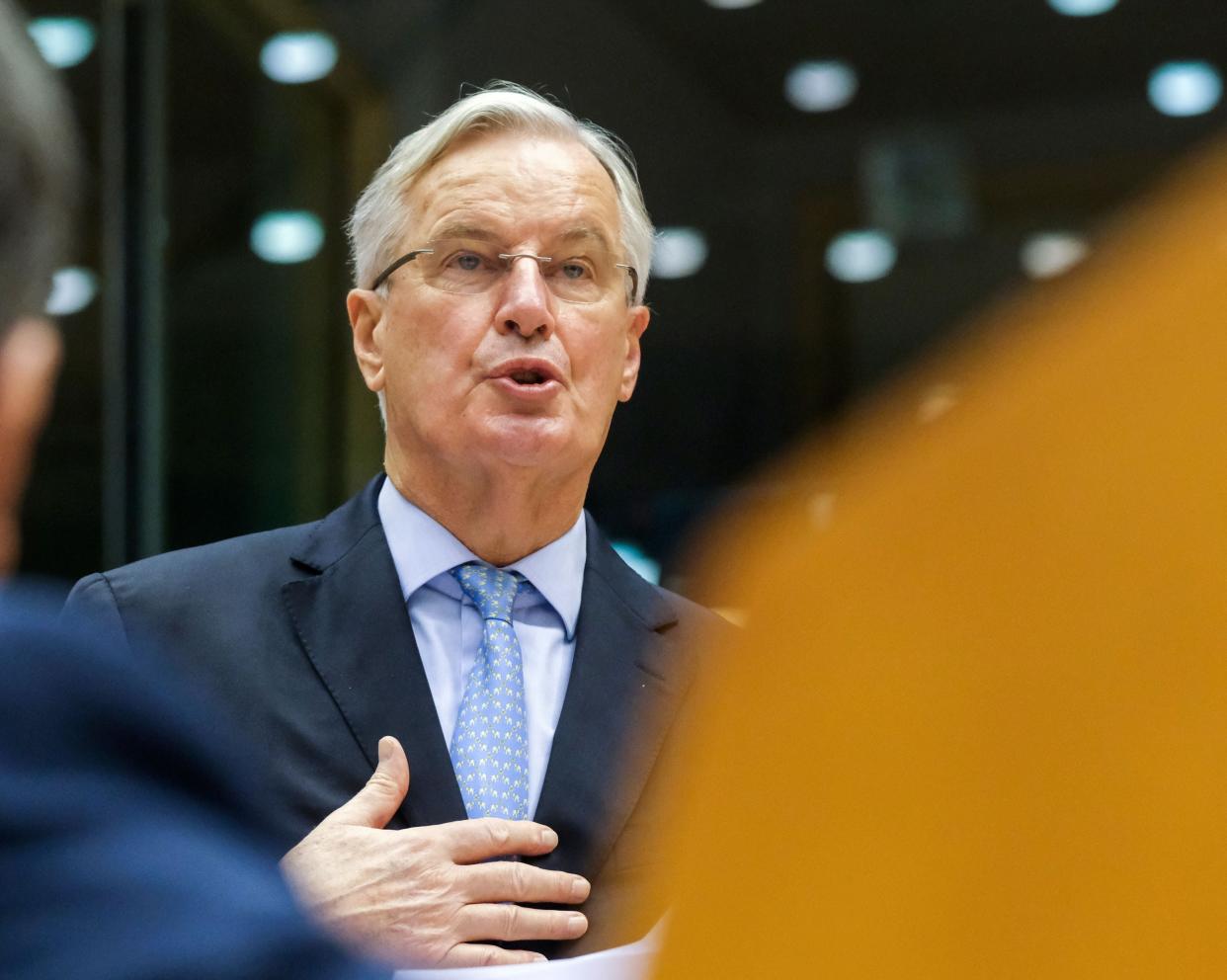Brexit deal ‘within reach’ if we both compromise, EU tells Boris Johnson in bid to restart talks

A Brexit trade agreement is "within reach" if both sides make compromises, the EU's chief negator has said – in a bid to get Boris Johnson back to the table and avoid a no-deal.
Speaking in the European Parliament chief negotiator Michel Barnier launched his biggest push for conciliation in talks so far, telling MEPs: "It takes two to make a deal."
Negotiating teams have been stood down since Friday after EU leaders embarrassed Mr Johnson at a summit by saying any deal was depending on the UK alone making moves. Downing Street dropped out of talks and said there was "no point" in any further discussions.
Mr Barnier, who had wanted to travel to London on Monday for more talks, has spent the last half a week trying to smooth over the row – speaking on the phone to his counterpart Lord Frost on a daily basis.
While both sides have described the calls as "constructive", they have yet to result in teams getting back around the table.
In his latest public intervention, Mr Barnier told MEPs: "We will seek the necessary compromises on both sides in order to do our utmost to reach an agreement and we will do so right up until the last day which it's possible to do so.
"Our doors will always remain open right up until the very end."
The EU's chief negotiator added: "Despite the difficulties we've faced, an agreement is within reach if both sides are willing to work constructively, if they are willing to compromise."
But he warned: "Time is running out each and every day".
A Downing Street spokesperson appeared impressed with the intervention, describing it as "significant" and adding that it would be studied carefully in No.10.
The trade talks have been at an impasse for months over issues including fishing access and state aid rules.
Mr Barnier said the level playing field for regulations remained a "fundamental concern" for the EU. But he added: "The UK are willing to look at this demand, and they're willing to move forward and shift in their way of looking at this.
"They're willing to do things in a different way to what exists in current trade deals among other countries."
European Council president Charles Michel, who was speaking at the same session, told MEPs: "Time is very short and we stand ready to negotiate 24/7, on all subjects, on legal texts. The UK has a bit of a decision to make and it's their free and sovereign choice."
Turning to the issue of regulations, Mr Michel called for "binding, independent arbitration" to redress market distortions.
On fishing, the president admitted that losing access to British waters would inflict "extraordinary damage" on the EU's fishing industry and said the bloc wanted to prolong the status quo.
On the same issue of fish, Mr Barnier added: "There will not be a trade deal without a fair solution for fishermen on both sides.
"There needs to be mutual access to waters and there needs to be a fair distribution of quotas for fishermen on both sides."
Speaking after the parliamentary session, Downing Street spokesperson said: “We note with interest that the EU’s negotiator, speaking to the European Parliament this morning, has commented in a significant way on the issues behind the current difficulties in our talks.
"We are studying carefully what was said. David Frost will discuss the situation when he speaks to Michel Barnier later today.”
If no trade deal is agreed with the EU and implemented before the end of the year, the UK will leave the single market and customs union and begin to trade on World Trade Organisation (WTO) terms.
UK businesses would have to pay high tariffs on goods and abide by restrictive quotas, which would cause serious economic disruption in both the short and long term. The arrangement is a default state of affairs and does not require the agreement of either side.
Read more
UK refusing to restart Brexit talks despite ticking no-deal clock

 Yahoo News
Yahoo News 
